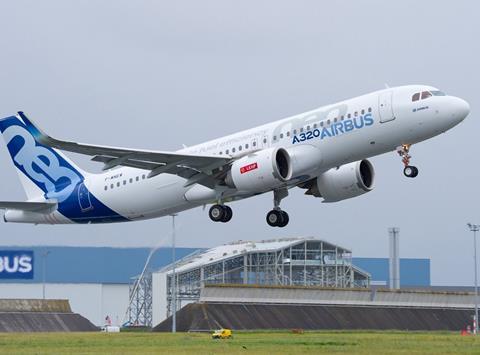Several high-pressure compressor stalls involving CFM International Leap-1A turbofans have prompted the Federal Aviation Administration to propose new maintenance requirements for the engines.
The US government on 10 October released a rule proposed by the FAA that would require airlines inspect and replace components in Leap-1As, which power Airbus A320neo-family jets.
“A report of multiple aborted take-offs and air turn backs caused by high-pressure compressor [stalls]” prompted the move, the proposal says.

The stalls were “induced by high levels of non-synchronous vibration” and involved wear on the engines’ number three “bearing spring finger housings”.
CFM issued a service bulletin in June addressing the issue.
The FAA’s proposal would require operators to complete items in that bulletin, including completing repetitive calculations – at intervals not exceeding 125 cycles – of vibration data.
If those calculations identify problems, operations would need to perform additional steps within 150 cycles.
Those steps include replacing bearing spring finger housings and inspecting to identify potential “rubs” in honeycomb components found within stage two high-pressure turbine nozzles and high-pressure turbine stator stationary seals. Operators would need to replace damaged honeycomb, the FAA proposes.
The regulator’s move follows reports of five high-pressure compressor stalls: three resulting in aborted take-offs and two prompting pilots to turn back after taking off.
“This condition, if not addressed, could result in engine power loss at a critical phase of flight, such as take-off or climb,” the proposal says.
It applies to 48 Leap-1As in the fleets of US carriers and would likely require airlines to replace number-three bearing spring finger housings in 33 engines.Several high-pressure compressor stalls involving CFM International Leap-1A turbofans have prompted the Federal Aviation Administration to propose new maintenance requirements for the engines.


























